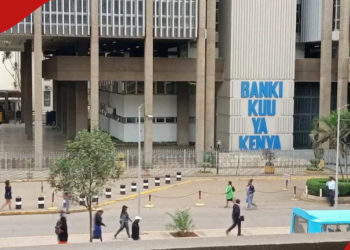Nairobi County has announced a boost in its budget allocation for infrastructure development, increasing it from KES 1.9 billion to KES 2.1 billion for the upcoming financial year.
The decision, made amid challenges posed by recent floods causing damage to infrastructure, aims to address pressing needs in the wake of heavy rains impacting roads across Nairobi.
The additional funds will be channeled through the Ward Development Programmes, with a focus on key areas such as infrastructure enhancement, school feeding programs, and Early Childhood Development Education. The county government has also committed to reviewing and potentially increasing the current Kshs 23.0 million allocated to each ward, aiming to strengthen overall service delivery in the capital.
The budgetary adjustment responds to the immediate need for infrastructural improvements, particularly in light of heavy rains severely affecting roads in various Nairobi estates. Eston Kimathi, the Acting CEO of the Ward Development Programme, emphasized the county’s dedication to enhancing the city’s infrastructure, highlighting that capital projects would be the primary beneficiaries of this increased budget.
Speaking at a technical working workshop in Naivasha, Kimathi explained that the Ward Development Fund budget had risen from KES 5.0 million to KES 23.0 million per ward. He expressed confidence in the county’s ability to effectively address the challenges facing city residents and restore their dignity. However, Kimathi acknowledged that ongoing rains could potentially cause delays in completing current infrastructural projects. To counter the impact of floods, the county has engaged over 2,500 youths to unclog drainage systems, aiming to significantly reduce road damage.
Nairobi’s funding strategy for these initiatives is notable. James Ngunjiri, Nairobi’s Head of Revenue, emphasized the county’s focus on internally financing the budget. This involves increased efforts in revenue collection, ensuring timely payments to contractors to reduce pending bills, and avoiding unnecessary debts. The county’s current administration is keen to avoid a situation like the previous regime, which left behind pending bills totaling over KES 100.0 billion.


















